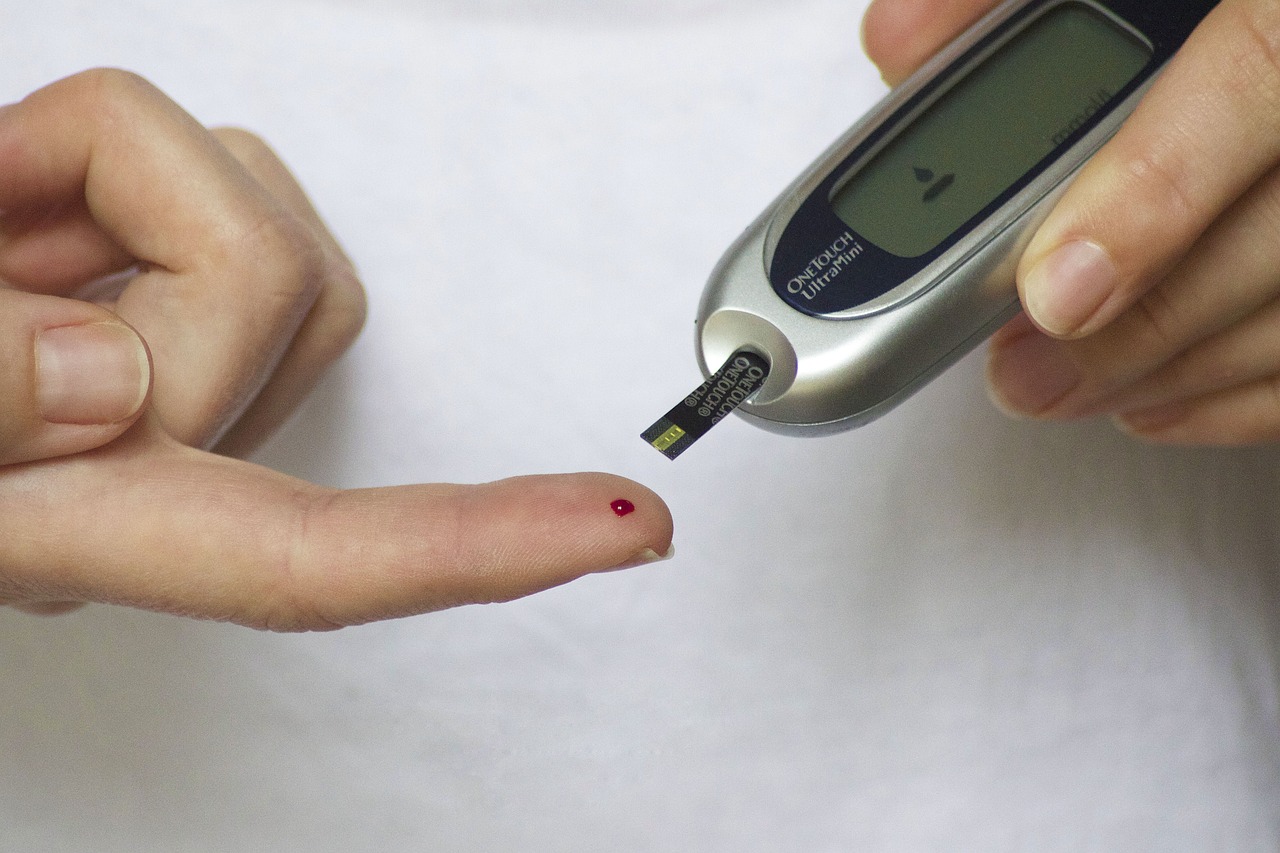Preventing Diabetes: Strategies for a Healthier Future
https://icdrc.org/wp-content/themes/osmosis/images/empty/thumbnail.jpg 150 150 admin admin https://secure.gravatar.com/avatar/693ccb227eb6527287caaa4e9eb13c6e?s=96&d=mm&r=g
Introduction:
Diabetes prevention is a critical public health priority given the rising prevalence of this chronic condition worldwide. While diabetes management is crucial for those already diagnosed, preventing the onset of diabetes altogether can significantly reduce the burden on healthcare systems and improve the quality of life for millions of individuals. In this article, we will explore various strategies for preventing diabetes, including lifestyle modifications, public health initiatives, and community interventions.
Understanding Diabetes and Its Risk Factors:
Before delving into prevention strategies, it’s essential to understand the different types of diabetes and the risk factors associated with each.
1. Type 1 Diabetes:
Type 1 diabetes is characterized by an autoimmune response where the body’s immune system erroneously targets and destroys the insulin-producing beta cells in the pancreas. Though the precise cause remains uncertain, it’s believed that a combination of genetic susceptibility and environmental triggers may contribute to its development. This condition necessitates lifelong insulin therapy to manage blood sugar levels and mitigate associated risks, underlining the importance of ongoing research efforts to better understand its origins and improve treatment outcomes..
Type 2 Diabetes:
Type 2 diabetes is defined by insulin resistance, a condition in which the body’s cells gradually lose sensitivity to insulin, resulting in elevated blood sugar levels. Risk factors for type 2 diabetes encompass obesity, a sedentary lifestyle, unhealthy dietary habits, family history of the disease, and aging. Lifestyle modifications such as regular exercise, healthy eating, and weight management are pivotal in prevention and management, underscoring the importance of early detection and intervention to mitigate the progression and complications of this prevalent metabolic disorder.
Gestational Diabetes:
Gestational diabetes emerges during pregnancy, triggered by hormonal shifts and insulin resistance. Women affected by gestational diabetes face an augmented risk of developing type 2 diabetes in subsequent years. Monitoring blood sugar levels during pregnancy and adopting healthy lifestyle practices are crucial in managing gestational diabetes and reducing the likelihood of developing long-term health complications, emphasizing the importance of comprehensive care and follow-up for both maternal and fetal well-being.
Prevention Strategies:
Preventing diabetes requires a multifaceted approach that addresses both individual behavior and broader societal factors. Here are some effective strategies for preventing diabetes:
1. Promoting Healthy Eating Habits:
Encouraging individuals to consume a balanced diet emphasizes the importance of including a variety of nutrient-rich foods such as fruits, vegetables, whole grains, lean proteins, and healthy fats. These foods provide essential vitamins, minerals, fiber, and other nutrients necessary for optimal health and well-being.
Limiting the intake of processed foods, sugary beverages, and high-calorie snacks is crucial because these items often contain excessive amounts of added sugars, unhealthy fats, and empty calories. Overconsumption of these foods can contribute to weight gain, obesity, and an increased risk of chronic health conditions such as diabetes, heart disease, and certain cancers.
Providing education and resources on meal planning, portion control, and healthy cooking techniques empowers individuals to take control of their dietary habits. Meal planning helps individuals make intentional choices about the foods they consume, ensuring they include a variety of nutritious options in their diet. Portion control helps prevent overeating and promotes weight management.
2. Encouraging Physical Activity:
Promoting regular physical activity encompasses various forms of exercise, including aerobic activities like walking, jogging, or cycling, which improve cardiovascular health and endurance. Strength training exercises, such as weightlifting or bodyweight exercises, help build muscle strength and support overall physical function. Additionally, flexibility exercises like stretching or yoga improve joint mobility and prevent injury.
Encouraging daily movement involves reducing sedentary behavior, such as prolonged sitting or excessive screen time, which is associated with negative health outcomes. Encouraging individuals to incorporate movement into their daily routines, such as taking short walks, using standing desks, or incorporating active breaks, helps counteract the detrimental effects of sedentary lifestyles.
Providing access to safe and affordable recreational facilities, parks, and walking trails enables individuals to engage in physical activity in their communities. Accessible recreational spaces encourage outdoor activities like walking, jogging, or playing sports, fostering a culture of active living. By offering opportunities for exercise in safe and welcoming environments, communities can support individuals in maintaining regular physical activity habits and promoting overall health and well-being.
3. Supporting Weight Management:
Offering weight management programs entails providing structured interventions that address behavior change, healthy eating habits, and increased physical activity. These programs typically aim to support individuals in achieving and maintaining a healthy weight by fostering sustainable lifestyle changes rather than quick fixes.
Nutrition counseling provides personalized guidance on healthier food choices. It helps manage portion sizes effectively. Individuals receive tailored meal plans to suit their needs. Exercise classes offer structured physical activity opportunities. Trained instructors guide participants. They promote adherence to exercise routines. Exercise classes encourage regular movement.
Support groups provide a supportive environment where individuals can share experiences, challenges, and successes related to weight management. Group settings offer social support, accountability, and motivation, which can enhance adherence to healthy lifestyle behaviors and improve long-term outcomes.
4. Implementing Public Health Initiatives:
Implementing policies and regulations aimed at promoting healthier environments involves various strategies to support individuals in making healthier lifestyle choices and reducing the prevalence of unhealthy behaviors.
Initiatives include implementing nutrition standards for school meals. They also involve offering healthy food options in workplaces. Additionally, vending machines are stocked with healthier choices. Supporting the development of grocery stores is important. Similarly, farmers’ markets are promoted in underserved areas. Overall, this increases access to healthy foods. These efforts aim to make nutritious foods more readily available and accessible to individuals, facilitating healthier dietary habits.
Policymakers implement sugar-sweetened beverage taxes. These taxes discourage unhealthy food and drink consumption. They target items high in added sugars and calories. Taxes aim to reduce consumption. Revenue generated funds for health promotion initiatives. The goal is to address related health issues.
5. Screening and Early Detection:
Offering diabetes screening programs across various settings, including healthcare facilities, workplaces, and community centers, aims to identify individuals who may be at risk of diabetes or prediabetes. These screening initiatives typically involve simple tests to assess blood sugar levels and other risk factors, allowing for early detection and intervention.
In addition to screening, providing education and resources on the importance of regular health check-ups and blood sugar monitoring is crucial. Encouraging individuals to prioritize routine check-ups and monitor their blood sugar levels helps to identify potential health concerns early on and facilitates timely interventions.
For individuals identified as having prediabetes, offering interventions such as lifestyle modification programs and support groups can be highly beneficial. These interventions often focus on promoting healthier lifestyle behaviors, such as improving dietary habits, increasing physical activity, and managing stress. Support groups provide a supportive environment where individuals can share experiences, receive guidance, and access resources to help them make sustainable lifestyle changes.
6. Promoting Health Equity:
Addressing social determinants of health is crucial. Factors include poverty, racism, and inadequate healthcare access. They impact individuals significantly. Access to healthy foods is affected. Engagement in physical activity is limited. Timely medical care may be lacking. These factors influence diabetes prevalence and management.
Engaging with community stakeholders is crucial. They include leaders, policymakers, and healthcare providers. It helps develop culturally tailored interventions. These interventions address diverse population needs. Collaborative efforts deepen understanding. They consider social, cultural, and economic factors. Stakeholders work together to develop interventions. These are sensitive to unique challenges and barriers. Ultimately, more effective strategies are created. They prevent and manage diabetes more efficiently.
Addressing social determinants of health is crucial. Engaging with community stakeholders is essential too. It helps reduce disparities in diabetes risk and outcomes. Acknowledging underlying factors is important. Creating inclusive approaches is key. This improves diabetes prevention and management. Ultimately, it enhances health outcomes for all.
Conclusion:
Preventing diabetes requires a unified effort from individuals, communities, healthcare providers, and policymakers. Promoting healthy lifestyles is vital. It involves diet, exercise, and weight management. Public health initiatives play a key role. Early screening is crucial. Addressing health disparities is important too. Together, these efforts reduce the burden of diabetes. Overall community health improves significantly. Together, these comprehensive approaches create a foundation for a healthier future, ensuring better outcomes for generations to come. You can learn about diabetes from here as well:








